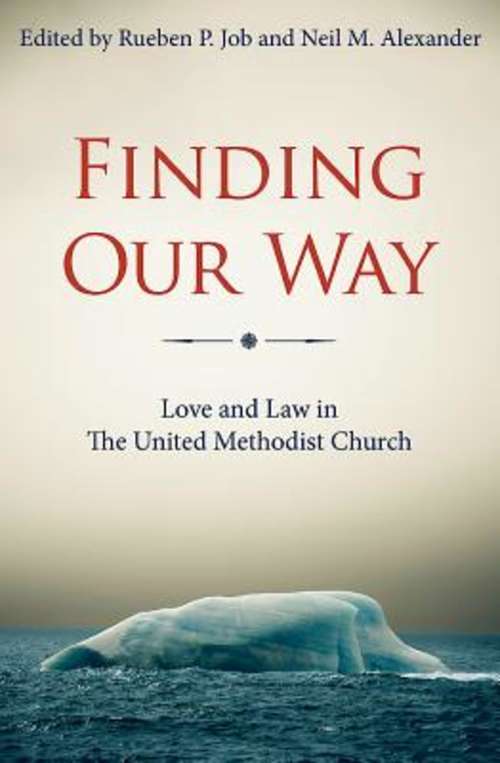
Finding Our Way: Love and Law in The United Methodist Church
Synthetic audio, Automated braille
Summary
Questions and conflict about homosexual practice and the church abound. We encounter media reports ofsame-gender unions and clergy trials. This leads to talk in congregations and district preacher's meetings, in the hallways atdistrict, conference and general church gatherings, and in… the deliberations of the Council of Bishops where we hear prayers,questions, and an outpouring of conviction or anguish.We observe The United Methodist Church grappling with issues of importance that divide and confound us. We hunger for our church to engage hard questions and decisions in a spirit of generosity, gracefulness, and mutual respect.This book could change the nature of the conversation. It encourages frank and constructive dialogue that will help us conference together and open ourselves to God's guidance. We seek faithful, fair, just, and loving resolution to issues that challenge our faith community.Finding Our Way: Love and Law in The United Methodist Church is authored by several United Methodist bishops. These writers enunciate and clarify pathways that represent faithful, responsible, and constructive ways forward through the current controversies. Each bishop articulates a prescription for moving through current conflict about homosexual practice, same-gender unions, qualifications for ordination, and maintaining the "good standing" of elders. Go to www.ministrymatters.com/FindingOurWay to read the introduction and to comment. Contents:Frame: An introduction about the guiding vision and theological framework as we seek together to be faithful to God and to our covenants. By Rueben P. Job, retired, from the Iowa Area, and by Neil M. Alexander, who is publisher for The United Methodist Church.Part One: OptionsEnforce (follow the Book of Discipline): The Discipline interprets scripture and contains the rule of law for UM congregations and elders. When sacred promises are violated, leaders must uphold the spirit and letter of the law and follow the process defined by the Discipline. By Gregory V. Palmer, who serves the Ohio West Area.Emend (work to change the Book of Discipline): The General Conference legislative process must be engaged to emend the Book of Discipline -- or not. This is the responsible and thoroughly United Methodist way ofmoving through disputes and reaching consensus. By Hope Morgan Ward, who serves the Raleigh Area.Disobey (biblical obedience): Scripture and the sanctity of love are a higher authority than the Book of Discipline.Therefore, the current impasse must be broken by loving acts of conscientious fidelity to higher principles. By Melvin G. Talbert,retired, from the San Francisco Area.Disarm (suspending conflict between personal and social holiness): In many kinds of conflicts, in marriage and in war, the conflicted parties drop their weapons or grievances, agree to a cease fire, and search for a peaceful way to resolve their disagreement. By Kenneth H. Carter Jr., who serves the Florida Area.Part Two: ResponsesOrder (supporting our covenant): Our sacred trust depends on keeping our promises. By J. Michael Lowry,who serves the Forth Worth AreaUnity (dwelling in God's church as a family of Christ followers): When two elephants fight, the grass suffers. By John K. Yambasu, who serves the Sierra Leone Area.Diversity (coexisting with differences). By Rosemarie Wenner, who serves the Germany Area and is current president of the Council of Bishops.Part Three: StepsTrust God (discernment): Immerse ourselves in an intense process of prayerful discernment. This approach pleads for the guidance of the Holy Spirit and asks all to open themselves without condition or pre-judgment to the insight and inspiration that comes through deep prayer and listening. By Rueben P. Job, retired, from the Iowa Area.